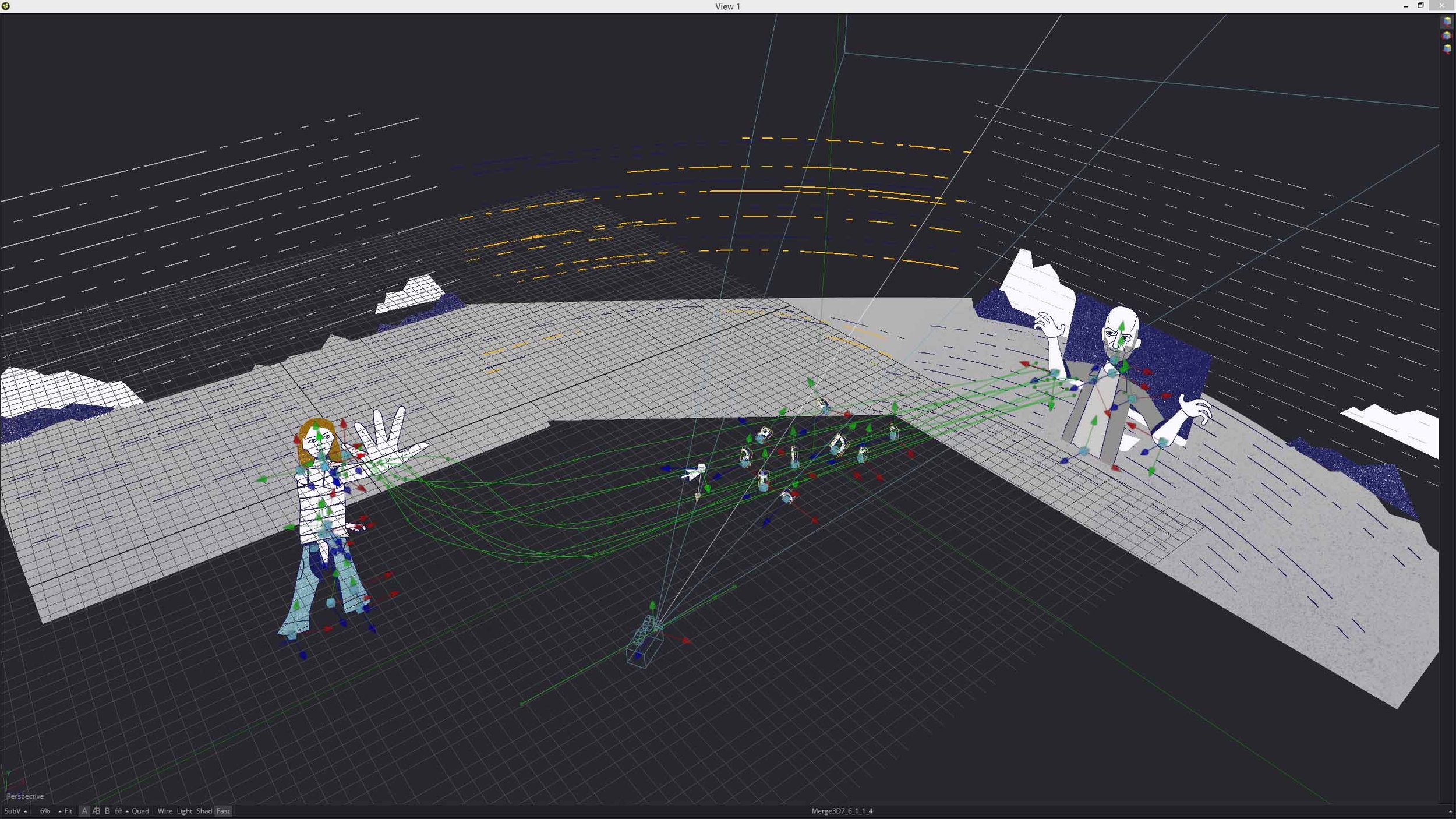Fusion : My PEN & PAPER
As a society, our growth took off once we started using tools. Optimal systems for using those tools evolved because they were thought to be best suited to get certain results, until something new arrived, that challenged those systems. Similar to how cars once replaced horses and carriages as means of general transportation (not without serious hiccups, though), after 14 years of using it, these days, Fusion has almost replaced a pen and paper for me as my primary creative tool (with a lot of hiccups included). Throughout history, there have been a lot of people that became great by sticking to one tool. How does that translate to today’s world, though?
With animation, there’s certainly a lot of options/software to pick from. But every industry has its standards. At least in my experience, though, standards in the animation industry are actually requirements (if you want to play along with most studios). Which is understandable - efficiency is key, and for big studios, workflow is king. So to avoid any double standards here – everyone is free to work with any software they decide to and suits their intended results best. Maybe your thing is to draw comic books in Microsoft Paint (if it really is, you’re amazing, go for it… ), or make YouTube thumbnails in CorelDraw (why?), and now, you definitely can. If you do decide to use an unorthodox tool, though, just don’t expect it to help you get closer to industry leaders (or on their radars) anytime soon. If you’re ok with that, you’re free of expectations and you can do whatever you want. Mostly. I can safely say though, that if I had stubbornly stuck solely to Fusion, and hadn't also learned to use AfterEffects and Cinema4D, so I can play with others, I’d probably be very very hungry or working in a different industry by now.
I could very well have »gone with the flow« and fully commit to either AfterEffects or Cinema4d, and again, to be fully transparent, I did need to learn a bit of both to use them for client work sometimes, but have found their creation process very rigid. And because I have never found the appeal in any of them, I never truly wanted to make the complete switch. Seeing those AE and C4D layers and groups, trying to seem all organized (precompose, anyone?) is nightmare fuel to me, even if it’s the industry standard. On the other hand, the node system in Fusion lets me translate, shape and mold my ideas the fastest + with the best results.
NESTE From Fries To Miles : MAKING OF / Process
Don’t get me wrong, I’ve never been shy to combine elements from different programs to reach a better result. You can’t exactly build a house using a toothbrush. But our primary tools define our ideas. That said, I guess my ideas are Fusion-inspired. Damn, that sounds awful, doesn’t it? And so, that leads me into the big PRO of both Cinema and AfterEffects – it’s not the software at all, but their communities. The support and infrastructure that was built by the the developers and the ever-growing user-base of those two powerful mainstream animation tools make it super hard to convince anyone to jump ship and try using Fusion. So I’m not going to try. Instead, I’d rather give a friendly holler at Blackmagic and its users to take inspiration from the bigger, more standardized communities. I’d very much rather pay more for a program if I knew its developers are actively trying to widen its user base and build a great big creative community, which will let both the software and the users evolve together. And so even if it’s a niche software, it’s something that we can all be proud of.
BUNNY KING OF NOWHERE : Making Of / Process
Seemingly unrelated, in recent years, I’ve come to see how hard I had been on myself. I wanted to make only big things / personal projects, because that would make me »bigger«, too. In a silly way, that logic kind of makes sense, right? But of course, it fed into creating more internal pressure and friction when I didn’t meet up to those self-appointed high standards. And at one point, I realized, I wasn’t focusing on making the short films that I was thinking so much about, but on the results they would potentially bring. Today, in contrast, I just want to make things that tell interesting stories. And by sticking to what I know best (Fusion), I get to make as much of them as I have time for. Unlike the legions of my short films that never came to be, these days, I want to be creative now, today.
I’ll probably raise a few designer eyebrows at this point, by saying that I’m also using Fusion to design quite a lot of styleframes and assets, instead of working in Illustrator and/or Photoshop. And with those specific cases, it’s not because there’s anything wrong with them – Photoshop especially is somehow the exception among layered-based programs, that lets me funnel ideas and concepts out rapidly, and I do love it. Here comes the but – BUT if I create something in Fusion, it’s animation-ready for the type of ideas that I have. Since I work fastest there, I can revisit the design anytime and breathe life into it without the pain of shuffling between programs and needing to re-organize and preparing anything new. And so, a lot of times, Fusion helps me harness my design superpowers, too.
LAST CIGARETTE ON EARTH : Making Of / Process
Probably going to raise a bit of controversy with this paragraph, but by starting to practice meditation a couple of years ago, I’ve learnt to reshape my stance on learning new things (or maybe it’s just due to getting older and “wiser”, haha): learning new things isn’t always a good thing. But, but - the animation industry has always had a very strong emphasis on new developments and technologies. Right, we wouldn’t be where we are today without that mindset, and I would never think a general mental shift would make things any “better”. In reality, the animation industry is doing just fine without any of my “bright” ideas. But, by practicing something every day, we get better at it. And if we’re always trying to adapt our process to something new that’s come out of a software lab and integrate it into our pipelines, it diminishes the amount of creative energy we can put into the actual art. To me, finding a good balance, so that the creativity doesn’t suffer (just so we can be on top with that latest plugin, render engine and their implications), is way more important, than what software developers would like us to believe. Practicing (one thing) doesn’t make us perfect, but it sure as hell makes us better and helps us grow in other areas.
THE TRY-AGAIN HAMSTER : Making Of / Process (FREE Project File HERE)
It’s very true that in the end, the tools we use in animation don’t matter at all - it’s how we use those tools to communicate ideas. Having said that: parading around with breakdowns and processes on how to use a fork in front of people who only want to use spoons, can’t really amount to anything. Which all just seems to bring me back to the beginning – find the best tool for YOU, stick with it, and share it by showing people what’s possible. But by all means, learn how to play with others, too. No one wants to be a starving artist, right?
“The moment you doubt whether you can fly, you cease for ever to be able to do it.”
― J. M. Barrie, Peter Pan
BLOG NOTES











